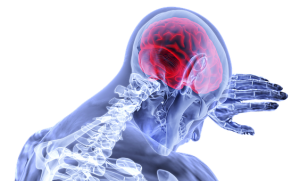 Anxiety and depression can take a huge toll on quality of life. It can affect your work, relationships, and can also make it hard to take care of your yourself. However, recent research shows that having a pet may help reduce anxiety and depression. Therefore, let’s learn more about how a pet could improve mental health status as well as other ways to help yourself feel happier and healthier.
Anxiety and depression can take a huge toll on quality of life. It can affect your work, relationships, and can also make it hard to take care of your yourself. However, recent research shows that having a pet may help reduce anxiety and depression. Therefore, let’s learn more about how a pet could improve mental health status as well as other ways to help yourself feel happier and healthier.
Basics of mental health
By definition, mental health involves your social, emotional, and psychological well-being. And a person may be more prone to such issues through factors like genetics, traumatic life experiences, or a family history of such issues.
There are many types of mental health issues, with the most commonly known being anxiety and depression. Some general signs of such issues include:
- eating too much or too little
- mood swings
- Low energy
- unexplained aches and pains
- inability to perform daily tasks
- feeling confused or on edge
These are just a few early warning signs of mental health issues. And if you notice such signs, it may be time to visit a healthcare professional. Also, you can visit the Mental Health America website for helpful resources.
Pets for better mental health
The Anxiety and Depression Association of America reports that the “pet effect” may help reduce symptoms of anxiety and depression. Experts also report that pets and therapy animals can lower feelings of stress, loneliness, and isolation. Not only that, but research also shows that pets can spark biological changes that can help reduce anxiety and depression.
One of these changes is that having a pet encourages physical activity. Exercise can improve not only brain health, but also the health of your body. This in turn can help improve your quality of life.
Pets can also improve your social support networks. For example, when you take your dog to the park or in public, people will likely interact with you and your pet. This in turn could help you feel more connected to your community. Also, this connection could help you feel less lonely and isolated.
Recent pet research
Also, the presence of a pet in the home could help you feel a sense of security and protection. A 2019 study looked at the impact of pets on physiology of college students. The study divided 249 students into four groups. One group had 10 minutes stroking and playing with cats and dogs. Then, another group observed those people interacting with the animals. Finally, the other two groups either looked at slideshows of animals or simply sat and waited in silence.
All the students had their saliva samples taken in the morning and after their interaction. Study results show that those who interacted with the animals had significantly lower cortisol, or “stress hormone,” levels as compared to baseline than the others. This early study shows promise that having a pet could help reduce mental stress in the body and mind. In turn, having a furry friend could help improve quality of life for their owners.
Other ways to improve mental health
If you don’t want a pet or don’t have the time or money to care for a pet, there are other ways to improve mental health at home.
Improve your diet: Experts report that eating foods high in refined sugars, like sugary drinks and processed snacks, are harmful to the brain. In turn, they can impair brain function and lead to mental health disorders like depression. Therefore, try to limit such foods in the diet and focus on adding more antioxidant-rich foods like fruits and vegetables that can reduce inflammation in the body and mind.
Add a supplement: In addition to eating healthier foods, you can also add a supplement to help improve your mood. An example of such a supplement is Elevia by Vita Sciences. Elevia contains natural ingredients like GABA and 5-HTP that help calm the mind and body while boosting serotonin, or “feel good hormone” levels.
Move more: Exercise helps release endorphins that can reduce stress in the body and mind. Therefore, try to be active each day by walking, jogging, cleaning house, dancing, or swimming, to name a few ideas.
Get involved: Volunteering in your community or joining groups like a walking group or arts and crafts group can help you feel better. This is because it will help yo feel less isolated and will provide you a better sense of purpose in your life.
Find support: Talking to a counselor or joining a support group can help you talk about what is causing stress in your life. And by talking about it, you can obtain resources from others to help reduce stress in your life. However, always be sure to talk to a qualified healthcare professional first if you feel you may be depressed or anxious.
Take home message
Taking care of your mind is just as important as taking care of your body. Therefore, whether it be a pet or gaining support from your community, there are plenty of small things you can do to help yourself. However, if you feel like you don’t know where to start, then visit your healthcare provider for resources.
-written by Staci Gulbin, MS, MEd, RD, LDN
References:
Anxiety and Depression Association of America (accessed July 22, 2019) “Tips.”
Feldman, S. (November 2018) “Alleviating Anxiety, Stress and Depression with the Pet Effect.” Anxiety and Depression Association of America.
Mental Health Foundation (accessed July 22, 2019) “Pets and mental health.”
MentalHealth.gov (last updated April 5, 2019) “What Is Mental Health?”
Sandoiu, A. (July 19, 2019) “More evidence that pets benefit mental health.” Medical News Today.
Selhub, M.D., E. (November 16, 2015) “Nutritional psychiatry: Your brain on food.” Harvard Health Publishing: Harvard Medical School.
 Recent statistics show that stroke is the number five cause of death and disability in the United States. This is why it’s so important to look into what factors may increase risk of this condition and work to reduce them. For example, a recent study shows that working long hours may increase one’s risk for stroke. Although this may not always be a factor that you can prevent, let’s learn more about this condition and ways you can lower your risk.
Recent statistics show that stroke is the number five cause of death and disability in the United States. This is why it’s so important to look into what factors may increase risk of this condition and work to reduce them. For example, a recent study shows that working long hours may increase one’s risk for stroke. Although this may not always be a factor that you can prevent, let’s learn more about this condition and ways you can lower your risk. With so much focus on diet and exercise helping the heart, brain health may take a back seat in the wellness arena. However, the brain is the control center of the body, and in turn must not be neglected. During the month of June, it’s especially important to be aware of the brain disease known as Alzheimer’s. You may have heard of it before, but may not know what it entails. Let’s learn more about this disease and how you can be an advocate for this devastating brain health condition.
With so much focus on diet and exercise helping the heart, brain health may take a back seat in the wellness arena. However, the brain is the control center of the body, and in turn must not be neglected. During the month of June, it’s especially important to be aware of the brain disease known as Alzheimer’s. You may have heard of it before, but may not know what it entails. Let’s learn more about this disease and how you can be an advocate for this devastating brain health condition.
 Anyone who has been on a healthy lifestyle plan knows that you should try not to drink your calories. This is because you want to cut calories wherever you can to lose weight. However, cutting out those sugary drinks are not only helpful in weight loss, but also in cutting your disease risk. In fact, a recent study found that those who drank less sugary drinks had a lower risk of chronic diseases and early death as compared to those who drank sugary drinks often.
Anyone who has been on a healthy lifestyle plan knows that you should try not to drink your calories. This is because you want to cut calories wherever you can to lose weight. However, cutting out those sugary drinks are not only helpful in weight loss, but also in cutting your disease risk. In fact, a recent study found that those who drank less sugary drinks had a lower risk of chronic diseases and early death as compared to those who drank sugary drinks often. If you’ve ever tried to eat healthy, which I’m sure most of us have, then you may have been told to eat more vegetables. This is a tried and true statement that is vital to every healthy lifestyle. This is because plant-based foods like fruits and vegetables are full of gut-healthy fiber and antioxidants. In turn, this helps to lower your risk of chronic diseases like heart disease and diabetes. That is why it may not be surprising that a recent study shows that a plant-based diet may help diabetes treatment.
If you’ve ever tried to eat healthy, which I’m sure most of us have, then you may have been told to eat more vegetables. This is a tried and true statement that is vital to every healthy lifestyle. This is because plant-based foods like fruits and vegetables are full of gut-healthy fiber and antioxidants. In turn, this helps to lower your risk of chronic diseases like heart disease and diabetes. That is why it may not be surprising that a recent study shows that a plant-based diet may help diabetes treatment. When you think of high blood pressure, or hypertension, your heart health may be the first thing that comes to mind. But what many may not realize is that blood pressure also relates to the health of your mind. It makes sense if you think about it. All the body’s tissues and organs require oxygen from the blood that flows from the heart. If something is affecting blood flow, then this can affect the health of many parts of your body. Let’s look a bit more at blood pressure and how controlling it can improve the health of your heart and mind.
When you think of high blood pressure, or hypertension, your heart health may be the first thing that comes to mind. But what many may not realize is that blood pressure also relates to the health of your mind. It makes sense if you think about it. All the body’s tissues and organs require oxygen from the blood that flows from the heart. If something is affecting blood flow, then this can affect the health of many parts of your body. Let’s look a bit more at blood pressure and how controlling it can improve the health of your heart and mind. Stroke continues to be one of the top ten leading causes of death in the United States. And even if a person survives a stroke, they may face permanent disability from a stroke. In turn, having a stroke could greatly impact a person’s quality of life. This is why it’s so important to keep learning more about how this disease can be prevented. A recent study shows that taking a fish oil supplement each day may help lower risk of stroke.
Stroke continues to be one of the top ten leading causes of death in the United States. And even if a person survives a stroke, they may face permanent disability from a stroke. In turn, having a stroke could greatly impact a person’s quality of life. This is why it’s so important to keep learning more about how this disease can be prevented. A recent study shows that taking a fish oil supplement each day may help lower risk of stroke. You can’t talk about a heart healthy lifestyle without at least referring to the Mediterranean diet. That’s because this Greek-style eating plan is full of heart healthy foods and other healthful tips. But did you know that this diet is also good for brain health? Recent research shows that certain nutrients found in the Mediterranean diet can help with brain health aging in older adults.
You can’t talk about a heart healthy lifestyle without at least referring to the Mediterranean diet. That’s because this Greek-style eating plan is full of heart healthy foods and other healthful tips. But did you know that this diet is also good for brain health? Recent research shows that certain nutrients found in the Mediterranean diet can help with brain health aging in older adults. When you think of celebrating the holidays, sweet treats, comfort foods, and holiday-flavored spirits may come to mind. Although it’s definitely ok to indulge a little during the holidays, too much of anything can sabotage your healthy lifestyle efforts. And with the new year rolling around soon, you should think ahead and make a plan. Because once this holiday season is over, the new year will surely bring about new celebrations with more food and drink temptations. And recent research shows that by drinking less alcohol, you could increase your chances for weight loss success.
When you think of celebrating the holidays, sweet treats, comfort foods, and holiday-flavored spirits may come to mind. Although it’s definitely ok to indulge a little during the holidays, too much of anything can sabotage your healthy lifestyle efforts. And with the new year rolling around soon, you should think ahead and make a plan. Because once this holiday season is over, the new year will surely bring about new celebrations with more food and drink temptations. And recent research shows that by drinking less alcohol, you could increase your chances for weight loss success.